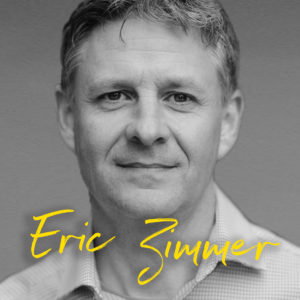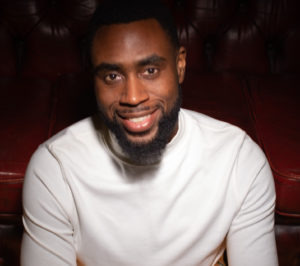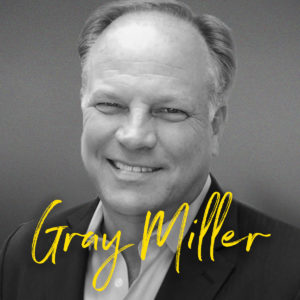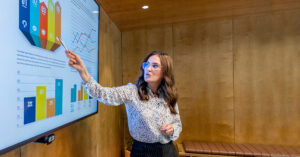Challenges and changes. Tests of fortitude, capacity and endurance. We all faced them in 2020 and they’ve followed us into 2021.
What is Believe in Better?
For those of you who’ve never been, The Believe in Better Project is a two-day event created in the spirit of a Nantucket Project or Aspen Ideas Festival. Each year, visionary speakers are invited to give the speech of their lives focused on fixing what’s broken in health care. Each gives a 20- to 30-minute TED-style talk followed by a question and answer session. Needless to say, we’ve had a lot to discuss since The Believe in Better Project began in 2018.
Believe in Better 2021: Harnessing the Power of Resilience
This year, of course, the event was held virtually. And, what an event it was! Our speakers and panelists embraced the topic of resilience and took us on a cathartic journey that had us:
- Taking pride in the obstacles we’ve overcome.
- Reflecting on our leadership through multiple crises.
- Confronting bias in our data-gathering and messaging.
- Embracing a model of health care built on compassion and determined to change the system as we know it.
- Holding ourselves and our marketing departments together through a pandemic, vaccination hesitation and more.
- Looking inward to our strengths and reserves.
- Moving deeper into our creativity.
7 Takeaways
Here are just a few snippets of the personal and professional resilience-building wisdom that was shared with us:
#1. Be like Luke. (thank you Eric Zimmer)
We all want a life that goes smoothly, but just like Luke Skywalker in Star Wars, each of us has our own personal Darth Vaders—those tough things that enter our lives. It’s by facing our Vaders that we become open to new possibilities and opportunities; we gain personal strength; we have deeper, more powerful relationships; and we have a greater appreciation for life.

When we’re faced with an event that is difficult to get past, we have to ask ourselves:
- What story am I telling myself about this (what am I making it mean)?
- Who do I want to be during this?
- Who can help me?
#2. Mother Nature is angry. We need to prepare. (thank you Jarrod Bernstein)
We live in an era where Mother Nature is angry: hurricanes, volcanoes, tornadoes, drought and a pandemic are just a few of the ways she is expressing herself. Add to her anger the political and social upheaval we’re experiencing and resilience becomes everybody’s business.
We must build a culture of resilience so that we are able to move on the fly with the right skill set. Building that culture means:
- Making resilience part of everything you do.
- Talking about the hazard—making it real, acknowledging it.
- Preparing.
- Leading and modeling resilience, as well as mental health. (Your personality, your soul and your mind need a tuneup from time to time.)
- Being able to laugh at the absurdity of it all.
- Testing our response.
#3. What’s wrong with data? (thank you Chris Hemphill)
We believe that data is perfect and true, when it is anything but. Why? Because the algorithms used to collect that data are biased. All algorithms are guilty of bias until proven innocent.

Addressing bias in our data collection is no small task and includes looking at it with knowledge, through technology, and through our culture and philosophy. Only then can we ensure that what our data is informing is inclusive.
#4. Caring for the sickest of the sick. (thank you Gray Miller)
Titanium Healthcare cares for the sickest of the sick—people with three to five chronic conditions. The model its founder, Gray Miller, created provides a higher level of care to the patient through care coordination, taking time to uncover what is causing people to stay sick.

Many of Titanium’s patients are dealing with so many health and life issues that it’s difficult to get them to a state that equals something close to autonomous. However, with care, a spark can be lit and the resilience that is within them can lead to better health.
#5. We’ve learned to bend like the willow. (thank you panelists Katie Johnson, Lisa McCluskey, Cynthia Floyd Manley)
Managing and leading a marketing and communications department through the COVID crisis and on, through vaccination shortages and now vaccine hesitancy, has been a marathon that hasn’t ended. Pivoting and problem-solving in a new way has been a must. Our views on resilience have changed. We’ve come to expect challenges and we choose how to respond to them in a healthy way.
Positives that have come from the crisis:
- Meeting with colleagues on Zoom and seeing their kids and pets has humanized them. People have become kinder and gentler and are taking care of each other.
- Health care has had to innovate quickly and break down long-standing barriers.
- Better collaboration among teams.
- Physicians are engaged with marketing.
- Increased reliance and confidence in the marketing department.
- Connecting with the community.
- Strong focus on employee wellness.
#6. Why all of a sudden am I burned out? (thank you Chaz Wesley)
Caregivers right now are in what is called compassion fatigue. They feel guilty and may make up a story around why they shouldn’t be feeling the way they do:
- I am called.
- I get paid to do this.
- I signed up for this.
They become depressed, anxious, and detached. There is a need to find balance and discover resilience. How they cope, how they find resilience, is as individual as each person. There is no magic formula. Everyone needs permission to pause and rest.
“Everything can be taken from a man but one thing: the last of the human freedoms—to choose one’s attitude in any given set of circumstances, to choose one’s own way.” —Victor Frankl, Austrian neurologist, psychiatrist, philosopher, author and Holocaust survivor.
#7. I dare you to take this serious business and make it more human! (thank you Chrisie Scott)
Creativity is the fingerprint of the human spirit and a must-have for our times. It has a place in our most serious and personal industry—health care.

We need to “heartwire” our thinking and the words we use in health care—make them more human, approachable and emotive. The non-creative language we use in health care can be hurtful and even lead to poor outcomes. Everything speaks; we need to pay attention.
You can take it all in: Watch for information
As always when The Believe in Better Project is over, we are amazed at and energized by the many brilliant people fighting for better. The many who in small and big ways care for and about those who are underserved and forgotten by the system. We are in awe of those who are working diligently to fix what is broken and We are filled with hope for where health care is headed.


